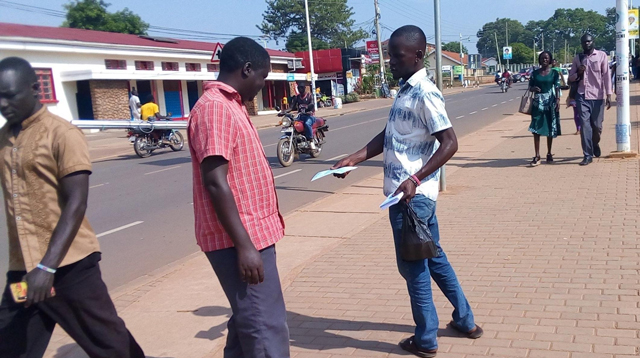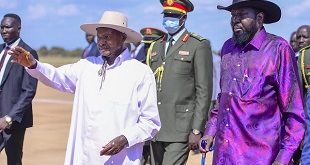
Gulu, Uganda | THE INDEPENDENT | Medical personnel in Gulu district are concerned about several traditional healers who are advertising their ability to heal various ailments along the roadside installations.
Adverts by traditional healers, many of whom refer to themselves as doctors are pinned on electric poles, and billboard stands and buildings across the city, listing the number of ailments they can “treat” using their herbs. In some cases, the healers hire people to distribute leaflets containing a list of diseases they can treat.
The leaflets have phone contacts, in case one decides to use them. However, medical experts are cautioning the public against buying herbs, especially those advertised on the streets.
Dr Alice Lamwaka, a pharmacologist at Gulu University Faculty of Bio-Technology and Pharmaceuticals, said those who are advertising their traditional medicine are mainly doing so for business purposes. She added that most times, those who advertise their herbs add conventional medicine to it, which might bring adverse reactions to the users.
Dr Lamwaka warns the public against buying herbs from people with no known physical address, saying they are not easy to trace and are mostly interested in making money, not healing a disease.
Dr Lamwaka notes that any herbalist who believes that they have a cure for a particular disease is required to take their herb to the faculty of biotechnology and pharmaceuticals at Gulu University for analysis before it is taken to the National Drug Authority for approval. He says a herbalist is only allowed to publicize one herbal medicine for a year, and have the sample re-tested every year, to ensure that it is not adulterated.
Dr Florence Oyella, the in-charge of palliative care at Gulu Regional Referral Hospital, warns patients with chronic diseases, against taking conventional medicine alongside herbal medicine, saying it might worsen their condition or cause other diseases. Dr Oyella cites that if a patient already has excess iron in their body and takes a herb that is high in iron levels, it will create an iron overload in their body, leading to organ damage.
Juliet Adoch, the coordinator of the traditional healers’ association in the Acholi sub-region, says they do not encourage advertising the potency of a herb. She however says although there are more than 280 registered traditional healers in the association, it is not clear if those who advertise their herbs have had them tested because the law requires a herbalist to practice from anywhere in Uganda, as long as they are in an association.
In February 2019, parliament banned the advertisement of concoctions claimed to heal various ailments, in approval of the Traditional and Complementary Medicines Bill, 2019. The bill created a council to regulate the sector and prohibited practitioners of traditional medicine and complementary medicine from advertising their practice unless the contents of the adverts are authenticated and authorized by the council.
The bill also prohibits persons who practice indigenous and complementary medicine from using or giving themselves titles belonging to the practice of modern medicine for which they are not qualified such as “doctor”, “nurse“ or “professor”.
********
URN
 The Independent Uganda: You get the Truth we Pay the Price
The Independent Uganda: You get the Truth we Pay the Price



